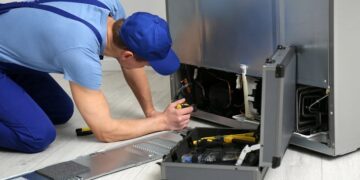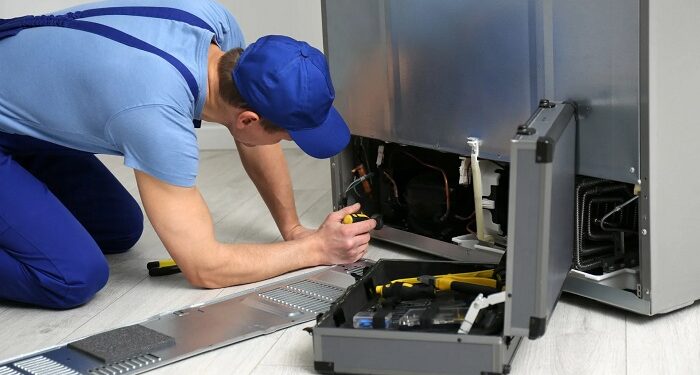Your refrigerator is one of the most essential appliances in the house, running day and night to keep food fresh. Even small malfunctions can lead to spoiled groceries and energy waste. Recognizing early signs of trouble helps avoid expensive repairs or full replacement.
Temperature problems
If you notice that your refrigerator is no longer keeping items cold enough, or that the freezer is forming excess frost, it usually indicates a problem with the cooling system. Temperature fluctuations can be caused by a worn compressor, clogged condenser coils, or a faulty thermostat. When basic cleaning and temperature adjustments don’t help, it’s time to call a technician.
Strange noises
Every refrigerator makes some level of sound, but constant clicking, buzzing, or grinding noises signal that mechanical parts are wearing out. The fan motor or compressor may be struggling, and if left unchecked, it can fail completely. Professional refrigerator repair ensures the problem is diagnosed correctly before more components are affected.
Leaking water or frost buildup
A small puddle under the fridge or ice accumulation in the freezer area shouldn’t be ignored. Water leaks often point to a blocked defrost drain or a damaged water supply line. Frost buildup could mean that the door seals aren’t tight enough, allowing warm air to enter and form condensation. Technicians can replace the worn gaskets and inspect the drainage system to restore normal operation.
Excessive energy use
When your monthly electricity bill suddenly increases without an obvious reason, the refrigerator may be the cause. A compressor that runs constantly or dirty coils behind the unit make the appliance work harder to maintain cold air. Cleaning and timely service can quickly return energy consumption to normal levels.
Food spoiling too fast
If milk turns sour sooner than expected or vegetables wilt within days, the refrigerator’s internal temperature may not be stable. Even small temperature changes shorten food shelf life. Regular inspection by an appliance specialist helps identify whether the thermostat or cooling fan needs adjustment.
Warm exterior walls
The outer walls of the refrigerator should stay cool or slightly warm. If they feel hot to the touch, it may indicate that the compressor is overheating or the condenser coils are clogged with dust. Unplugging the appliance and scheduling repair prevents damage to the cooling system.
When to call a professional
While it’s safe to clean the coils or check door seals on your own, tasks like replacing motors, compressors, or thermostats require professional expertise. Certified technicians have the tools and experience to handle refrigerant safely and restore full performance.
A refrigerator in good working condition maintains steady temperature, runs quietly, and consumes minimal energy. Regular maintenance every 6–12 months and quick response to the first warning signs can help extend its service life by years. If you’re unsure about the cause of a malfunction, contact a local appliance repair service — it’s the fastest and most reliable way to bring your refrigerator back to optimal operation





















